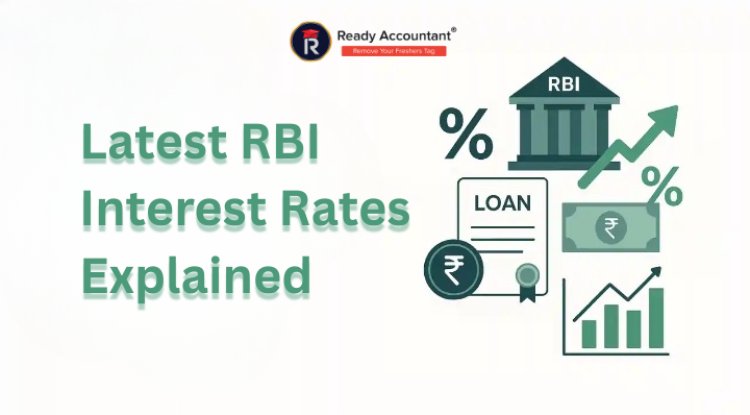Who Needs to File ITR?
Income Tax Return (ITR) filing is mandatory for anyone whose annual income crosses the basic exemption limit of ₹3,00,000 under the new tax regime. Individuals with income from multiple sources, capital gains, foreign assets, high-value transactions, or TDS deductions must also file ITR. Businesses and professionals with gross receipts above ₹2.5 lakh, NRIs earning income in India, and people wanting to claim refunds or carry forward losses are required to file returns as well. Even if not mandatory, filing ITR helps in loan approvals, visa processing, and maintaining a clean financial record.

Income Tax Return (ITR) filing is one of the most important annual responsibilities for individuals and businesses in India. Yet, every year, millions of taxpayers are confused about who actually needs to file an ITR. Many people assume that only those with high income must file returns—but in reality, the rules are much broader.
Whether you’re a salaried employee, a freelancer, a homemaker earning interest income, or a business owner, ITR filing may be mandatory for you under certain conditions. Filing your ITR also offers major financial benefits, including easier loan approvals, visa processing, and proof of income.
In this detailed guide, we break down who must file an ITR for AY 2025–26, the latest rules, income thresholds, and special cases you should know.
1. Individuals Whose Total Income Exceeds the Basic Exemption Limit
The most common category is individuals whose total annual income is above the basic exemption limit set under the Income Tax Act.
Basic Exemption Limits (New Tax Regime)
-
₹3,00,000 – Individuals (below 60 years)
-
₹3,00,000 – Senior citizens (60–79 years)
-
₹3,00,000 – Super seniors (80+ years)
The new tax regime is now the default, so these slabs automatically apply unless the taxpayer opts out.
If your income exceeds these limits—salary, business income, interest, rental income, or capital gains—you must file an ITR.
2. Individuals Earning Income From More Than One Source
Many people earn income from:
-
Salary + Freelancing
-
Business + House property
-
Salary + Stock market profits
-
Salary + Interest/FD/Commission
If you have multiple income sources, ITR filing becomes compulsory even if your income is slightly below the exemption limit, because deductions or TDS adjustments require a return.
3. Individuals With Income From Capital Gains
If you earn capital gains, even small amounts, you must file ITR. This includes:
-
Intraday trading
-
Futures & options (F&O)
-
Mutual fund redemptions
-
Selling property
-
Selling gold
-
Selling crypto (taxable as virtual digital assets)
Even if your taxable income is below ₹3 lakh, capital gains reporting requires you to file a return.
4. People Who Have Deposited Large Amounts in Bank Accounts
The Income Tax Department has flagged certain high-value transactions. You need to file an ITR if you:
-
Deposit ₹10 lakh or more in a savings bank account in a year
-
Deposit ₹50 lakh or more in a current account
-
Spend ₹2 lakh or more on foreign travel
-
Pay ₹1 lakh or more in electricity bills
Even if your income is below the exemption limit, these transactions make ITR filing mandatory.
5. Individuals Who Want to Claim a Refund
If TDS has been deducted from:
-
Salary
-
Fixed deposits
-
Rent
-
Commission
-
Professional income
…and your total tax liability is less than the TDS deducted, you must file ITR to claim a refund.
No ITR = No refund.
6. Individuals Who Have Foreign Income or Assets
If you:
-
Own property abroad
-
Hold shares in foreign companies
-
Hold foreign bank accounts
-
Earn income from foreign sources
-
Have foreign crypto or digital assets
You must file an ITR, even if your income is below the basic exemption limit. This rule applies to residents under FEMA.
7. NRIs With Taxable Income in India
A Non-Resident Indian (NRI) must file an ITR if they earn taxable income in India from:
-
Salary in India
-
Rental income
-
Capital gains from stocks or property
-
Interest from Indian bank accounts (except NRE/FCNR)
-
Business income in India
However, NRIs need not file ITR if their income is limited to TDS-deducted interest (NRO account) and no refund is claimed.
8. Businesses With Gross Receipts Above ₹2.5 Lakhs
Any business, including proprietorships, must file ITR if gross receipts exceed ₹2.5 lakh in a financial year.
This applies to:
-
Small businesses
-
Traders
-
Shop owners
-
Consultants
-
Startups
Even if the profit is low, filing the return is compulsory once turnover crosses the threshold.
9. Professionals With Gross Receipts Above ₹2.5 Lakhs
Doctors, lawyers, architects, accountants, freelancers, YouTubers, influencers, and all other professionals must file ITR if gross receipts exceed ₹2.5 lakh.
If you choose Presumptive Taxation (44ADA), filing becomes even easier.
10. Individuals Claiming Losses to Carry Forward
If you want to carry forward losses such as:
-
Business losses
-
Capital losses
-
House property losses
-
Trading losses
…you must file your ITR before the due date. Otherwise, you lose the right to claim them in the future.
11. People With Tax Deducted at Source (TDS)
Even if your income is below ₹3 lakh, if TDS was deducted, filing ITR ensures:
-
Refund claim
-
Correction of Form 26AS errors
-
Clean financial profile
-
Better creditworthiness
12. If You Earn Dividend Income Above ₹5,000
Dividend income above ₹5,000 is taxable, and TDS may be deducted. Therefore, ITR filing is mandatory to reconcile dividend tax.
13. If You Hold Unlisted Shares
If you have invested in:
-
Startups
-
Private companies
-
ESOPs
-
Pre-IPO shares
…you must file an ITR and disclose holding details.
Benefits of Filing ITR Even If It's Not Mandatory
Even if filing isn’t compulsory, filing voluntarily offers benefits such as:
-
Faster loan approvals (home, car, business loans)
-
Easy visa processing
-
Serves as proof of income
-
Helps build a clean financial profile
-
Shows financial discipline
Today, many employers and financial institutions prefer applicants who file regular tax returns.
Documents Required for ITR Filing
Here’s what you need:
-
PAN & Aadhaar
-
Form 16 (for salaried individuals)
-
Form 26AS / AIS / TIS
-
Bank statements
-
Investment proofs
-
Rent receipts
-
Business financial statements
-
Capital gains statements
-
Interest certificates
Conclusion
The Income Tax Department has made ITR filing simpler and more transparent with AIS/TIS and e-filing portals. But taxpayers must understand that ITR filing is not only for high-income individuals—anyone meeting the criteria above must file their return.
Whether you are a salaried employee, a freelancer, or a business owner, filing your ITR annually helps you stay compliant and financially secure.
If you need help in understanding taxation, GST, TDS, and accounting, institutes like Ready Accountant help students and professionals become job-ready with courses like:
What's Your Reaction?



















